All courses listed here will count towards students’ Honors coursework requirements for Global and International Honors. Please double-check the course attributes before registering and talk with your primary advisor to ensure your course selections best meet your needs.
Students in Global Honors have the option of completing Honors Course Contracts to enhance courses to the Honors level if they wish to earn Honors in the spring but are not interested in/unable to fit the below-listed courses. You will get more information about this in January 2024.
Note: We are updating course descriptions as we receive them from faculty. Be sure to check this page periodically if you don’t see a description for a course you are interested in taking!
MAC Critical Thinking in the Social and Behavioral Sciences (MSBS)
TR 11:00 a.m. —12:15 p.m.
Instructor: Hand, Dominick
CRN: 10401
Seats: 10

MAC Diversity and Equity (MDEQ)
T 6:00 p.m. — 8:50 p.m.
Instructor: Noble, Demetrius
CRN: 10584
Seats: 5
 In order to intelligibly discuss Blacks in American society, one must be able to account for and parse through the complexities that emerge at the nexus of class, gender, sexuality and place. Moreover one should be able to delineate how these distinct yet overlapping features inform the various ways that racial oppression manifests itself and how Black folks organize to fight back and struggle against such oppression. Through its specific focus on the horrific conditions of working-class Black life in the city, this course will examine how Black liberation struggle shifted away from the Jim Crow South to the urban terrain of the city in the post-civil rights era.
In order to intelligibly discuss Blacks in American society, one must be able to account for and parse through the complexities that emerge at the nexus of class, gender, sexuality and place. Moreover one should be able to delineate how these distinct yet overlapping features inform the various ways that racial oppression manifests itself and how Black folks organize to fight back and struggle against such oppression. Through its specific focus on the horrific conditions of working-class Black life in the city, this course will examine how Black liberation struggle shifted away from the Jim Crow South to the urban terrain of the city in the post-civil rights era.
MWF 11:00 a.m. — 11:50 a.m.
Instructor: Eyssallenne, Jazmin
CRN: 10417
Seats: 5
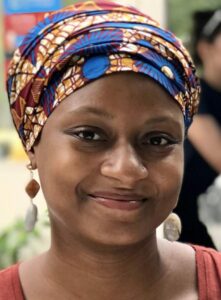
TR 9:30 a.m. — 10:45 a.m.
Instructor: Morrissette, Noelle
CRN: 10420
Seats: 5
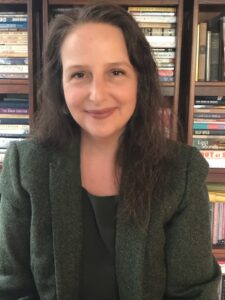
MAC Nat Sci Data Analysis (MSDA)
MWF 9:00 a.m. — 9:50 a.m.
Instructor: Wasserberg, Gideon
CRN: 11253
Seats: 24
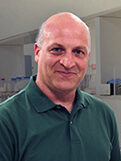 The chemical and structural properties of cells accomplish energy transfers in living systems using enzymes and dynamically maintain a constant internal environment (homeostasis). Organisms reproduce moving genetic information moves from one generation to the next. Scientific inquiry results in a greater understanding of life. BIO 112 is a general biology course for students who are science majors or are engaged in affiliated fields of study.
The chemical and structural properties of cells accomplish energy transfers in living systems using enzymes and dynamically maintain a constant internal environment (homeostasis). Organisms reproduce moving genetic information moves from one generation to the next. Scientific inquiry results in a greater understanding of life. BIO 112 is a general biology course for students who are science majors or are engaged in affiliated fields of study.
MAC Global and Intercultural (MGIL)
MWF 11:00 a.m. — 11:50 a.m.
Instructor: LeBlanc, Robyn
CRN: 12338
Seats: 5
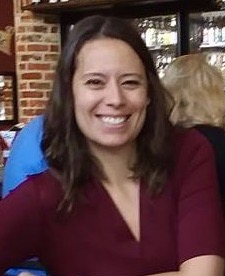 This class covers the art, architecture, and archaeology of the ancient Roman world. We’ll explore the lives of the Romans by looking at the things they created, from tombs to monuments to, yes, even toilets and mountains made out of broken pots. Class highlights include exploring replicas of ancient objects, a tour of classical architecture on campus, and an ancient cooking demonstration. The honors section will additionally complete a poster project studying the remains of a house from Pompeii, a city destroyed during a volcanic eruption 2000 years ago.
This class covers the art, architecture, and archaeology of the ancient Roman world. We’ll explore the lives of the Romans by looking at the things they created, from tombs to monuments to, yes, even toilets and mountains made out of broken pots. Class highlights include exploring replicas of ancient objects, a tour of classical architecture on campus, and an ancient cooking demonstration. The honors section will additionally complete a poster project studying the remains of a house from Pompeii, a city destroyed during a volcanic eruption 2000 years ago.
TR 11:00 a.m. — 12:15 p.m.
Instructor: Allen, Aaron
CRN: 10263
Seats: 5
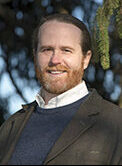 GES 162 is a survey of sustainability from four perspectives: environmental sciences, development and economy, equity and justice, and ethics and aesthetics. Local, global, ethical, and experiential dimensions help prepare students for subsequent coursework in environmental and sustainability studies. It is intended for current and prospective majors and minors. Honors students registered for GES 162H are required to earn a B or better to receive honors credit. Honors students must also complete specified additional work in four course assignments, including a personal narrative, a farmers’ market report, a curriculum planning exercise, and the final essay.
GES 162 is a survey of sustainability from four perspectives: environmental sciences, development and economy, equity and justice, and ethics and aesthetics. Local, global, ethical, and experiential dimensions help prepare students for subsequent coursework in environmental and sustainability studies. It is intended for current and prospective majors and minors. Honors students registered for GES 162H are required to earn a B or better to receive honors credit. Honors students must also complete specified additional work in four course assignments, including a personal narrative, a farmers’ market report, a curriculum planning exercise, and the final essay.
MAC Foundations (MFND)
MWF 10:00 a.m. — 10:50 a.m.
Instructor: Jones, Jeff
CRN: 10095
Seats: 10
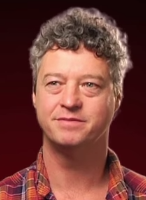 This class fulfills the Foundations Competency (C1) of the MAC General Education System. As a MAC Foundations course, it is designed to help students transition successfully to academic and student life. While developing skills essential for academic success, students will connect with the broader UNCG community, campus resources and opportunities, and begin their journey to discovering their own purpose and potential. At the same time, this is also a history course, the purpose of which is to introduce students to the historical roots of the key events, issues and themes in modern world history, focusing mainly on the post-World War II period, from the use of atomic bombs on Japan in August 1945, to the complex, high-tech, evolving world of today. We will view this history from the point of view of those living it, including students in the class themselves. Everyone has a “historical consciousness,” an understanding of the way the world became what it is today, and a goal of this class is to introduce students to alternative ways of interpreting history by weighing the merits of differing points of view, as well as to find their place in the community and the wider world as global citizens. We will examine the world by region—Europe, Asia, the Middle East, Africa, and Latin America—with a number of themes in mind: the Cold War; democracy; the rise and fall of communism; violent vs. non-violent resistance to oppression; nationalism; the rise of terrorism; gender relations; colonialism/de-colonization; racial/ethnic/religious diversity and conflict; genocide; information literacy/media criticism; and the international economy.
This class fulfills the Foundations Competency (C1) of the MAC General Education System. As a MAC Foundations course, it is designed to help students transition successfully to academic and student life. While developing skills essential for academic success, students will connect with the broader UNCG community, campus resources and opportunities, and begin their journey to discovering their own purpose and potential. At the same time, this is also a history course, the purpose of which is to introduce students to the historical roots of the key events, issues and themes in modern world history, focusing mainly on the post-World War II period, from the use of atomic bombs on Japan in August 1945, to the complex, high-tech, evolving world of today. We will view this history from the point of view of those living it, including students in the class themselves. Everyone has a “historical consciousness,” an understanding of the way the world became what it is today, and a goal of this class is to introduce students to alternative ways of interpreting history by weighing the merits of differing points of view, as well as to find their place in the community and the wider world as global citizens. We will examine the world by region—Europe, Asia, the Middle East, Africa, and Latin America—with a number of themes in mind: the Cold War; democracy; the rise and fall of communism; violent vs. non-violent resistance to oppression; nationalism; the rise of terrorism; gender relations; colonialism/de-colonization; racial/ethnic/religious diversity and conflict; genocide; information literacy/media criticism; and the international economy.
Instructor: Lavender, Larry
Asynchronous online
CRN: 14509
Seats: 20
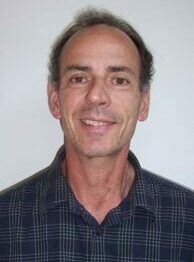 In this course we explore the “human-animal” divide as it shapes our beliefs about and attitudes toward the natural world in general, and toward non-human animals in particular. We consider the ethics of myriad personal, political, and industrial activities involving non-human animals, and share points of view on any “rights” such creatures do or should possess. Finally, we delve into the use and representation of non-human animals in artistic works. The course is offered in an asynchronous online format. Students are expected to be proactive learners who bring issues forward to the group for lively discussion.
In this course we explore the “human-animal” divide as it shapes our beliefs about and attitudes toward the natural world in general, and toward non-human animals in particular. We consider the ethics of myriad personal, political, and industrial activities involving non-human animals, and share points of view on any “rights” such creatures do or should possess. Finally, we delve into the use and representation of non-human animals in artistic works. The course is offered in an asynchronous online format. Students are expected to be proactive learners who bring issues forward to the group for lively discussion.
MAC Global and Intercultural (MGIL), Women’s, Gender, and Sexuality Studies (WGS)
TR 9:30 a.m. — 10:45 a.m.
Instructor: Toler, Eric B.
CRN: 13021
Seats: 15
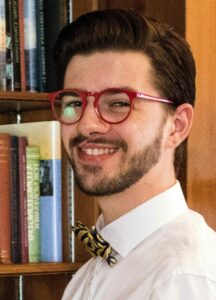 In this class, we’ll embark on a critical exploration of freedom and how it’s made—particularly what it means to afford freedom to some at the cost of violence toward others. We will examine the ways in which power, violence, and resistance shape our ideas of freedom, inclusion, and global engagement. Course texts will invite students to think critically about post-colonial governance structures, the power and politics of death and violence, common conceptions of terrorism, and prison-industrial modes of punishment. As we move through and past these conversations, we will also practice freedom dreaming, considering how communities can push back against violence and co-create a new way to live and engage with each other.
In this class, we’ll embark on a critical exploration of freedom and how it’s made—particularly what it means to afford freedom to some at the cost of violence toward others. We will examine the ways in which power, violence, and resistance shape our ideas of freedom, inclusion, and global engagement. Course texts will invite students to think critically about post-colonial governance structures, the power and politics of death and violence, common conceptions of terrorism, and prison-industrial modes of punishment. As we move through and past these conversations, we will also practice freedom dreaming, considering how communities can push back against violence and co-create a new way to live and engage with each other.
Content Warning: Students in this course will engage in reading, dialogue, and research related to the many ways that oppressive systems impact people’s lives, including physical violence and death. Please consider this aspect of the course as you contemplate your registration.
MAC Critical Thinking Natural Sciences (MNTS)
MW 2:00 p.m. — 3:15 p.m.
Instructor: Haddy, Alice
CRN: 13022
Seats: 25
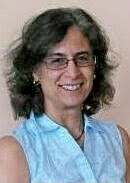 One of the biggest challenges of today’s society is the shift from fossil-based fuels to alternative fuel sources. For more than a century, the industrialized world has depended on coal and petroleum energy and our way of life is deeply tied to these high-energy resources. Now the world faces declining fossil fuel resources and environmental repercussions from their past use. Meanwhile, alternative sources of energy such as solar and wind are struggling to advance sufficiently to fill the energy needs of developed countries and to support the growing demands of still-developing countries. What will the profile of our energy resources be in the future? Can future energy sources support the high-energy demand we have become used to? In this course, we will study the science of how we produce and use energy. We will develop an understanding of our past and current dependence on fossil fuels and evaluate how alternative energy resources may serve society in the future.
One of the biggest challenges of today’s society is the shift from fossil-based fuels to alternative fuel sources. For more than a century, the industrialized world has depended on coal and petroleum energy and our way of life is deeply tied to these high-energy resources. Now the world faces declining fossil fuel resources and environmental repercussions from their past use. Meanwhile, alternative sources of energy such as solar and wind are struggling to advance sufficiently to fill the energy needs of developed countries and to support the growing demands of still-developing countries. What will the profile of our energy resources be in the future? Can future energy sources support the high-energy demand we have become used to? In this course, we will study the science of how we produce and use energy. We will develop an understanding of our past and current dependence on fossil fuels and evaluate how alternative energy resources may serve society in the future.
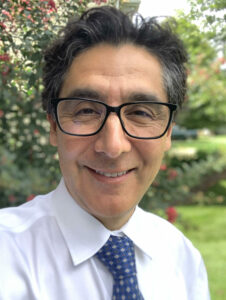 While the history of science is often presented in Eurocentric, individual, and male-centered ways (think Galileo, Newton, Darwin, Einstein), the sciences that led to sending a probe to Mars, developing an mRNA vaccine, replacing heart valves, and creating AI are the innovations of millennia of trial and error and global cultural exchange. Science (the activity of making observations, asking questions, experimenting, testing, and predicting), like all human endeavors, is collective and cumulative–one discovery building on another, conceptually or in terms of tools or methods (from the domestication of animals to the development of telescopes). The seminar will explore these histories through primary sources, discussion of documentaries, conversation with invited guest speakers, research projects, and experiential learning opportunities, including field trips to the North Carolina Museum of Natural Sciences, the Greensboro History Museum, the Lam Museum of Anthropology, the Guilford Woods, the Joint School of Nanoscience and Nanoengineering, and several biology and chemistry labs on campus.
While the history of science is often presented in Eurocentric, individual, and male-centered ways (think Galileo, Newton, Darwin, Einstein), the sciences that led to sending a probe to Mars, developing an mRNA vaccine, replacing heart valves, and creating AI are the innovations of millennia of trial and error and global cultural exchange. Science (the activity of making observations, asking questions, experimenting, testing, and predicting), like all human endeavors, is collective and cumulative–one discovery building on another, conceptually or in terms of tools or methods (from the domestication of animals to the development of telescopes). The seminar will explore these histories through primary sources, discussion of documentaries, conversation with invited guest speakers, research projects, and experiential learning opportunities, including field trips to the North Carolina Museum of Natural Sciences, the Greensboro History Museum, the Lam Museum of Anthropology, the Guilford Woods, the Joint School of Nanoscience and Nanoengineering, and several biology and chemistry labs on campus.
MAC Diversity and Equity (MDEQ)
TR 2:00 p.m. — 3:15 p.m.
Instructor: Bolte, Angela
CRN: 13023
Seats: 25
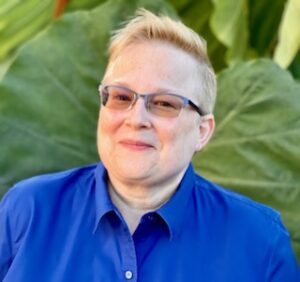 Sex and love. Love and sex. One or the other always seems to be on the minds of most people. While these topics are frequent matters of late-night discussions among friends and lovers, they are also topics of scholarly interest. This course will explore contemporary philosophical debates about sex and love drawing from philosophers such as: Alan Soble, Talia Mae Bettcher, Thomas Nagel, Kim Q. Hall and Raja Halwani. Specific topics may include discussions of how to define sex, the distinction between types of sexualities, defining what, if anything, is “normal” sex, sexual identity, sexual exploitation and objectification, sexual consent, the relationship between sex and romantic love, and the nature of love. This course will deal explicitly with mature, potentially controversial themes and topics that may be deeply personal for some. It is important that students come to class willing to explore these topics and treat other students’ comments and opinions confidentially and respectfully.
Sex and love. Love and sex. One or the other always seems to be on the minds of most people. While these topics are frequent matters of late-night discussions among friends and lovers, they are also topics of scholarly interest. This course will explore contemporary philosophical debates about sex and love drawing from philosophers such as: Alan Soble, Talia Mae Bettcher, Thomas Nagel, Kim Q. Hall and Raja Halwani. Specific topics may include discussions of how to define sex, the distinction between types of sexualities, defining what, if anything, is “normal” sex, sexual identity, sexual exploitation and objectification, sexual consent, the relationship between sex and romantic love, and the nature of love. This course will deal explicitly with mature, potentially controversial themes and topics that may be deeply personal for some. It is important that students come to class willing to explore these topics and treat other students’ comments and opinions confidentially and respectfully.
TR 2:00 p.m. — 3:15 p.m.
Instructor: Limburg, Elin
CRN: 13090
Seats: 5
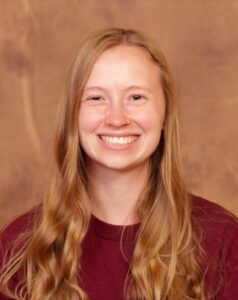 What is the enduring appeal of stories about women-robots and their male creators? What does it mean to be an “authentic” versus an “artificial” woman? What is the “android aesthetic” and what roles does it play in contemporary culture? What does “autonomy” mean in the context of gender and sexuality studies?
What is the enduring appeal of stories about women-robots and their male creators? What does it mean to be an “authentic” versus an “artificial” woman? What is the “android aesthetic” and what roles does it play in contemporary culture? What does “autonomy” mean in the context of gender and sexuality studies?
Students will answer these questions by examining “artificial” women from German literature and visual media of the 19th to the 21st centuries. Key figures include the automaton Olimpia from ETA Hoffmann’s iconic short story “The Sandman” (1817), the robot Maria from Thea von Harbou and Fritz Lang’s groundbreaking film Metropolis (1927), and the monstrous Claire Zachanassian from Friedrich Dürrenmatt’s dark comedy play The Visit (1956). Our primary focus will be analyzing these works and investigating intersections of gender and technology in the characterization of “the artificial woman.”
W 3:00 p.m. — 5:50 p.m.
Instructor: Hale, Marcia
CRN: 12422
Seats: 10
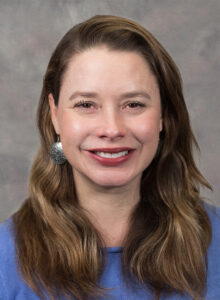 Critical multiculturalism provides the framework for exploring multiple dimensions of diversity and its impact on creating and transforming conflicts. We will consider experiences of power and privilege, and justice/injustice, as core aspects of culture. The impact of cultural interactions is a core focus.
Critical multiculturalism provides the framework for exploring multiple dimensions of diversity and its impact on creating and transforming conflicts. We will consider experiences of power and privilege, and justice/injustice, as core aspects of culture. The impact of cultural interactions is a core focus.
TR 9:30 a.m. — 10:45 a.m.
Instructor: Broache, Michael
CRN: 10473
Seats: 5
MW 3:30 p.m. — 4:45 p.m.
Instructor: Crowther, William
CRN: 10476
Seats: 5
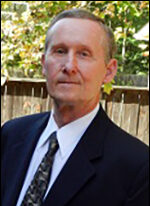
MWF 11:00 a.m. — 11:50 a.m.
Instructor: Crowther, William
CRN: 12393
Seats: 5